'Red addresses' for students to experience in Nghe An
(Baonghean.vn) - With a rich cultural and historical tradition, Nghe An has many relics and destinations for students to visit and experience, serving the learning process, expanding knowledge and raising awareness.
 |
Recently, some schools in Nghe An have organized trips for students to experience in distant provinces, lasting for many days, affecting their studies, wasting money and making parents worried. Students' experiences are really necessary but do not necessarily have to go far, because in Nghe An there are also many "red addresses" for students to learn, explore and improve their understanding of their homeland's traditions. First is the Kim Lien National Special Relic Site (Nam Dan), where President Ho Chi Minh was born and spent his childhood years. Photo: Dinh Tuyen |
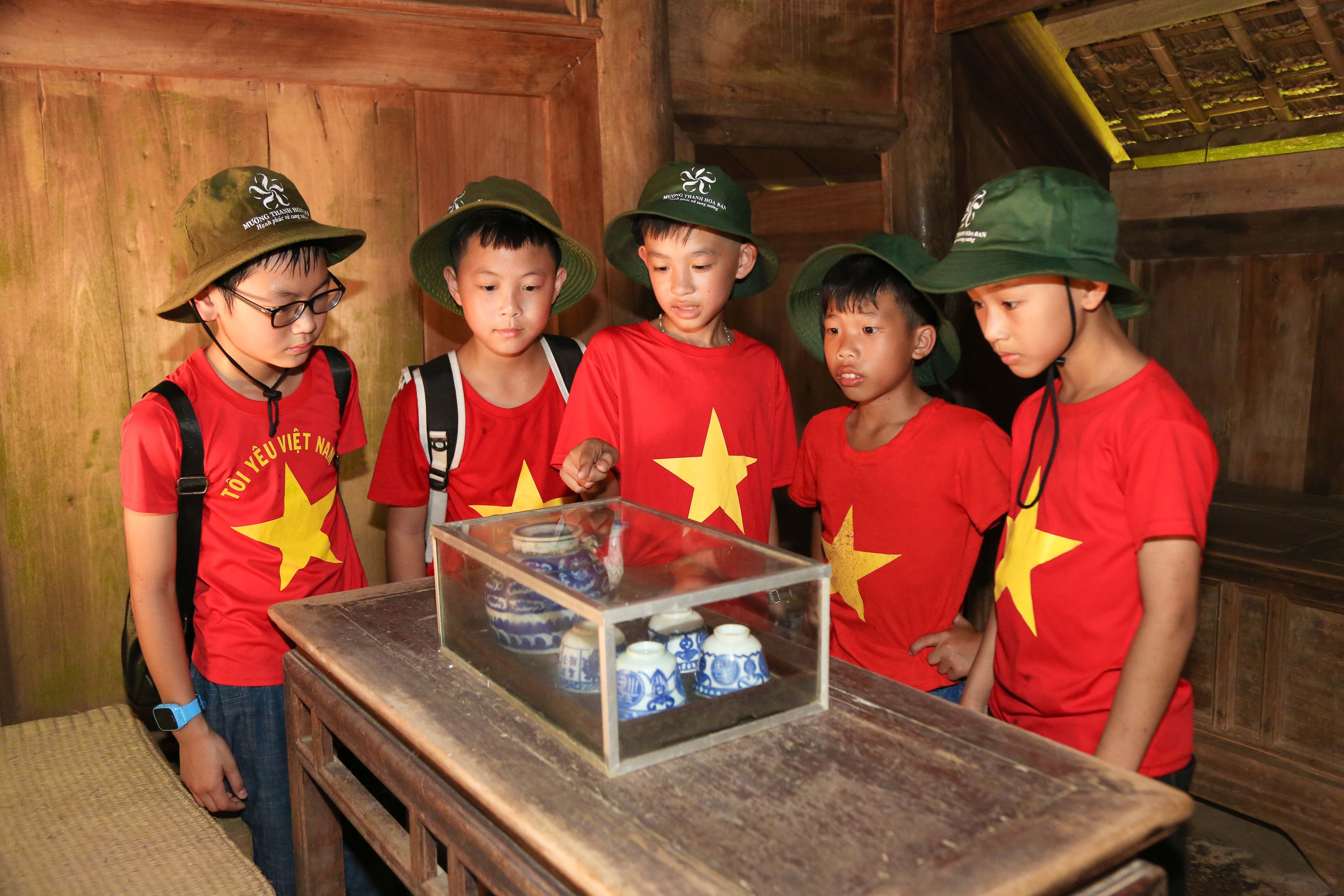 |
Coming to the Kim Lien National Special Relic Site, children will learn more about Uncle Ho's childhood and family through the scenery and simple artifacts such as thatched roofs, tables, chairs, trays, bowls, looms... From there, children will love and respect the Father of the nation even more. Photo: Dinh Tuyen |
 |
In Vinh city, there are 3 large museums: Nghe An Museum, Nghe Tinh Soviet Museum and Military Zone 4 Museum with a rich amount of documents and artifacts, valuable in history and culture, helping us visualize the formation and development process of Nghe An homeland and Vietnam. In particular, Nghe An Museum stands out with more than 31,300 documents and artifacts from the Stone Age to modern times, displayed according to each historical period, helping the public have an overall view of the flow of history and culture. Photo: Dinh Tuyen |
 |
Nghe An Museum has artifacts that mark the cultural and social life hundreds, even thousands of years ago, such as stone and bronze tools of primitive people. These artifacts will help students visualize the stages and steps of history. Photo: Dinh Tuyen |
 |
In addition, Nghe An Museum also displays artifacts related to the resistance wars for national liberation and defense of the Fatherland. Through this, it helps students see the heroic and indomitable tradition of their homeland and country. Photo: Dinh Tuyen |
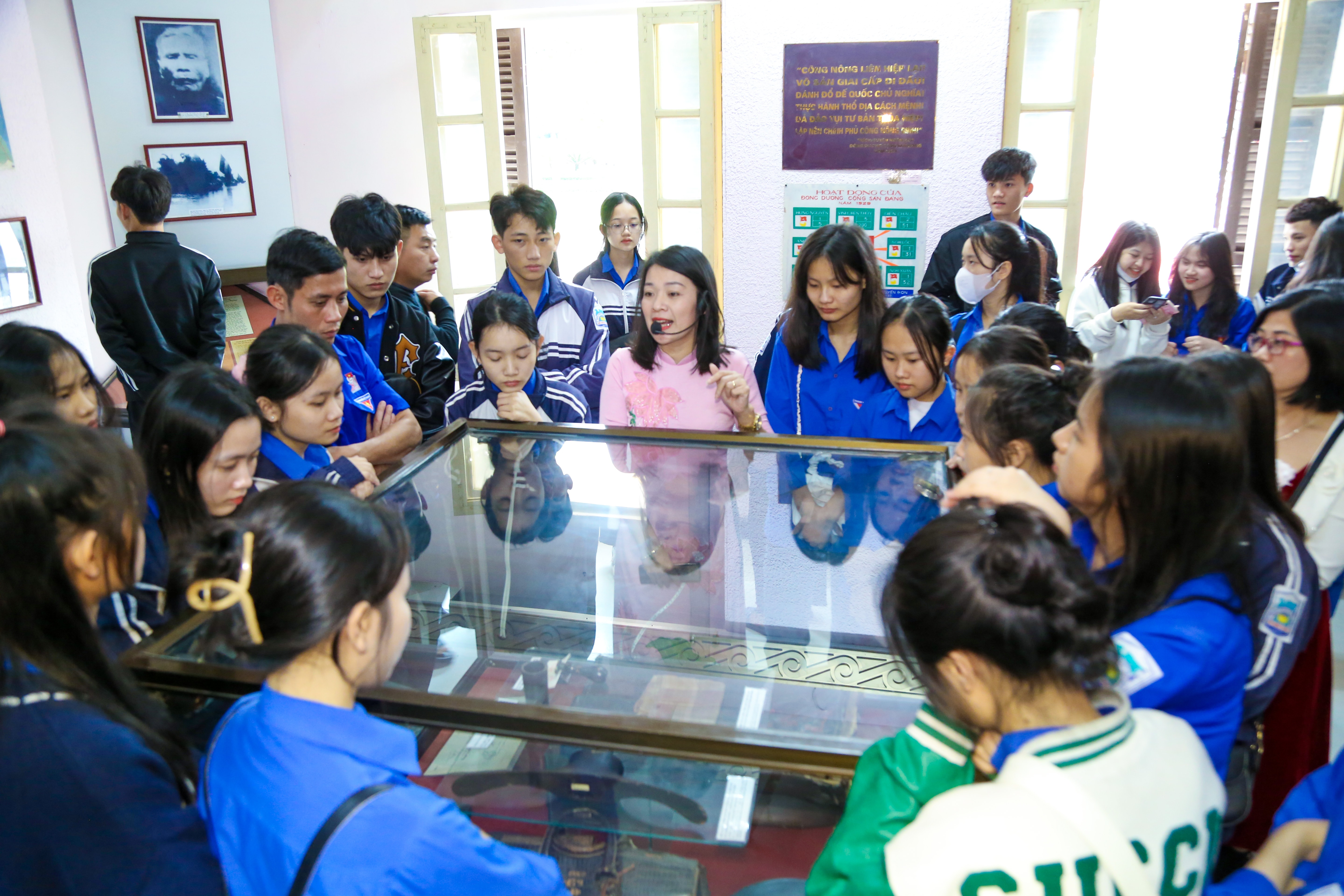 |
| The Nghe-Tinh Soviet Museum currently preserves and displays nearly 16,000 documents and artifacts related to the Nghe-Tinh Soviet Revolutionary Movement (1930-1931). These artifacts will shed more light on the "earth-shattering" event, demonstrating the spirit and will of the masses under the leadership of the Party. Photo: Dinh Tuyen |
 |
The excitement of viewing historical documents at the Nghe-Tinh Soviet Museum. Photo: Dinh Tuyen |
 |
Recently, in addition to serving visitors and introducing artifacts, Nghe An Museum and Nghe-Tinh Soviet Museum also organize experiential activities and physical games to help children have fun, entertain themselves and improve their physical strength. Photo: Dinh Tuyen |
 |
In Nghe An, there are many "red addresses" for students to visit and experience. A typical example is the Nghe-Tinh Soviet Square (Hung Nguyen town, Hung Nguyen district), where the massacre by French colonialists took place on September 12, 1930. Photo: Dinh Tuyen |
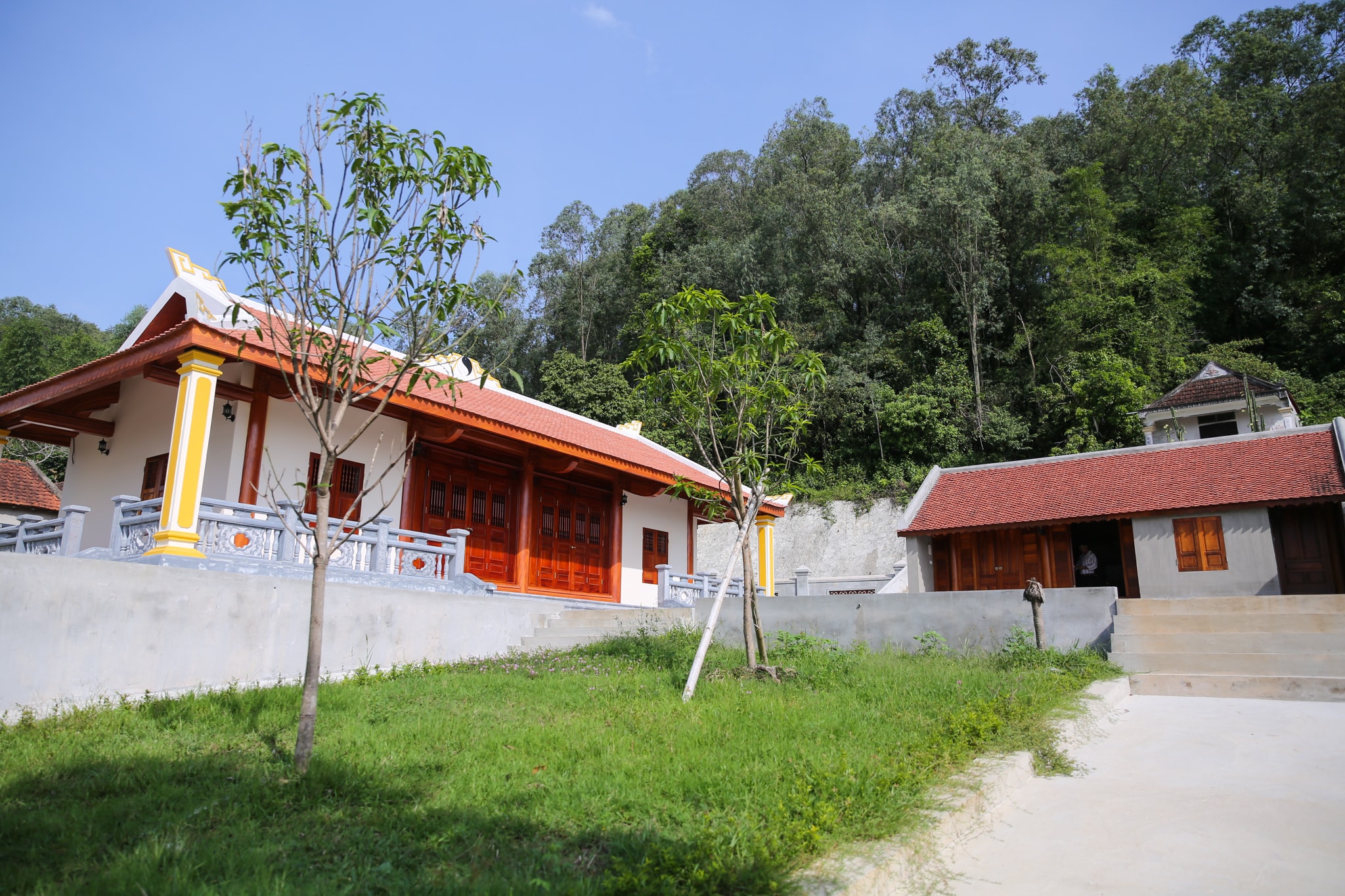 |
Also in Hung Nguyen, the National Historical Site of Mr. Hoang Vien's House (Chau Nhan Commune) used to be the workplace of the Central Region Party Committee and a place to hide revolutionary cadres. Some valuable historical artifacts are preserved here, reminding us of the hardships, dangers and determination of our revolutionary predecessors. Photo: Dinh Tuyen |
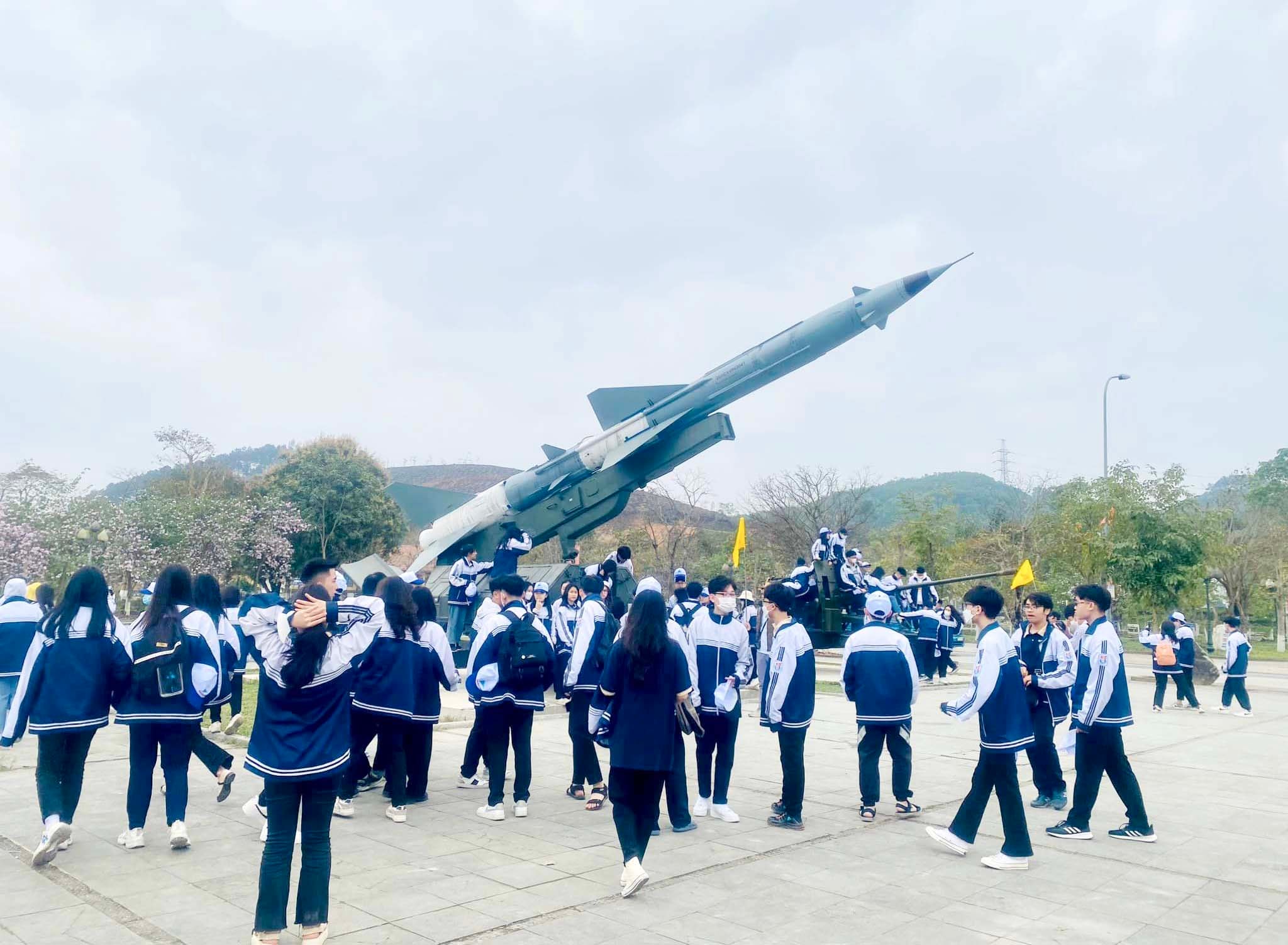 |
In addition, Nghe An also has many historical relics and interesting tourist attractions, helping students have real-life experiences such as the special national relic Nguyen Xi temple (Nghi Loc), the special national relics of King Mai temple, Hoanh Son communal house (Nam Dan), Truong Bon National Historical Relic Site (Do Luong), Emperor Quang Trung temple, Trung communal house, General Chu Huy Man Memorial House (Vinh city)... Photo: CSCC |

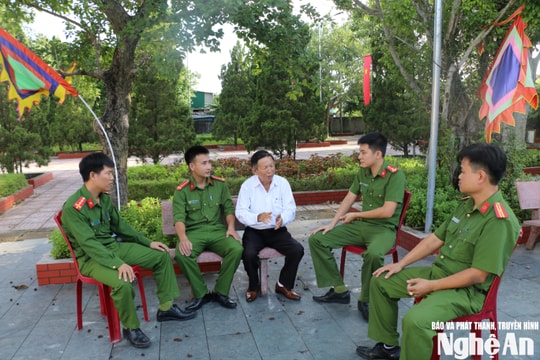
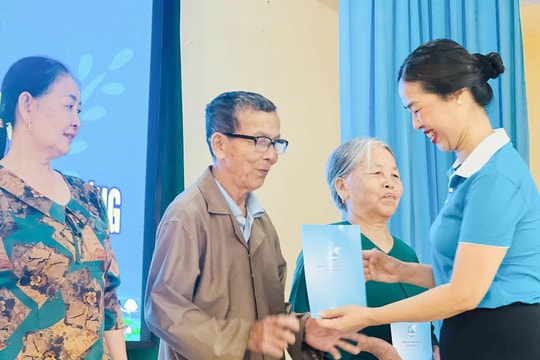
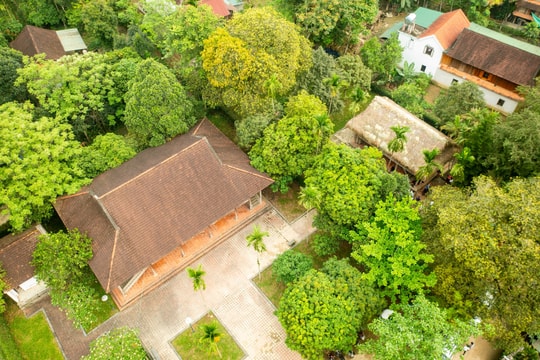
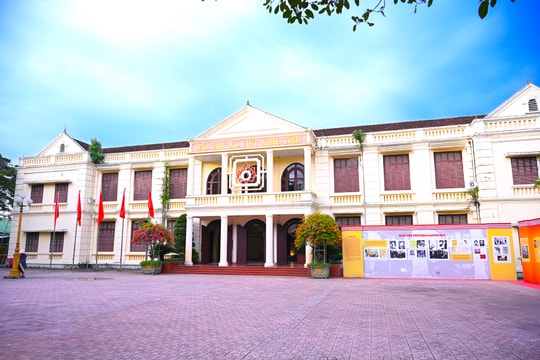
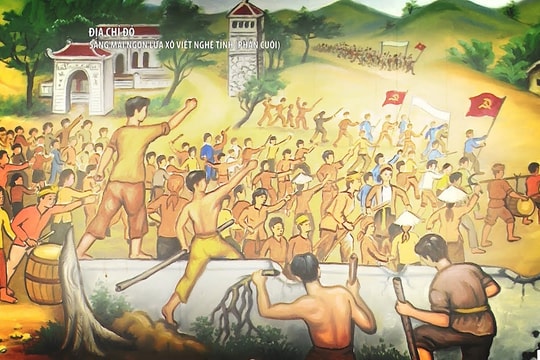
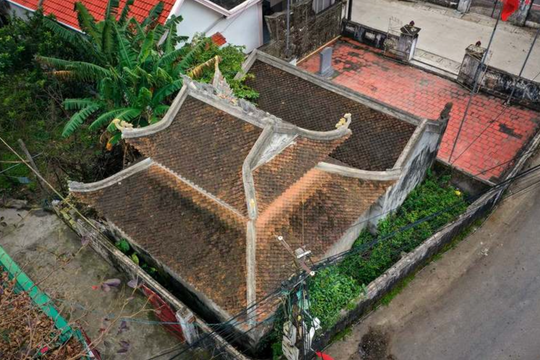
.jpg)
